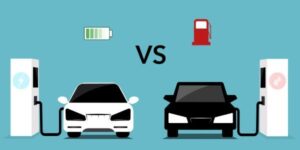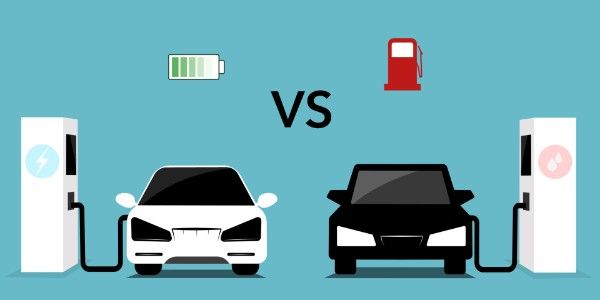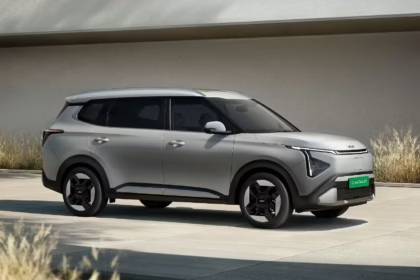Transformation in the automotive market is substantial because electric vehicles (EVs) demonstrate quick global market growth. The rising concern about sustainability and rising fuel expenses leads more people to replace their traditional ICE cars with electric models. The central point of discussion regarding EV vs Petrol/Diesel Cars relates exclusively to operating costs.
- The Rise of Electric Vehicles
- EV vs Petrol/Diesel Cars: Running Costs Breakdown
- Why Are EVs More Cost-Efficient?
- 1. Lower Electricity Rates
- 2. Higher Energy Conversion Efficiency
- 3. Reduced Maintenance Costs
- 4. Regenerative Braking System
- Factors Affecting EV Running Costs
- 1. Electricity Costs
- 2. Type of Charging
- 3. Battery Capacity and Usage
- 4. Government Policies and Incentives
- 5. Imposition of Taxes
- Maintenance Costs: EV vs Petrol/Diesel Cars
- Long-Term Savings with EVs
- Future Outlook: Will EVs Dominate the Market?
- Conclusion: EV vs Petrol/Diesel Cars – Which is Better?
- FAQs
This article examines tested ev vs petrol running cost comparisons between EVs vs petrol/diesel cars through analysis of different factors that affect vehicle ownership and operational expenses.
The Rise of Electric Vehicles
Electric vehicles demonstrate unparalleled market growth across the world. The combination of better batteries coupled with improved charging systems alongside rising environmental consciousness makes EVs suitable choices for various buyers.
The high initial price that EVs command makes them less appealing to consumers seeking a new car, while petrol/diesel vehicles remain the preferred option. People wonder about the long-term running expense comparison between EVs and petrol/diesel vehicles. We will evaluate the lifetime expenses of the Hyundai Kona Electric against internal combustion engine cars by analysing price differences for a 564-kilometre route.
EV vs Petrol/Diesel Cars: Running Costs Breakdown
1. Charging Costs vs Fuel Costs
EVs achieve substantial running cost advantages through electric energy instead of petroleum or diesel fuel. EVs operate using electric power to fill their battery cells because electric charges are typically less expensive than both diesel and petrol. Let’s break down the numbers:
Hyundai Kona Electric (EV):
- Charging Cost for 564 km: ₹1,101
- Cost per km: ₹1.95
Diesel Car:
- Fuel Cost for 564 km: ₹2,453
- Cost per km: ₹4.34
Petrol Car:
- Fuel Cost for 564 km: ₹2,735
- Cost per km: ₹4.85
The comparison proves that EVs significantly outperform Petrol/Diesel Cars regarding operating expenses. With its lower spending on fuel the Hyundai Kona Electric achieves a cost advantage equal to 2.5 times more compared to diesel cars and 2.5 times lower than those using petrol.

Read the full report of the analysis on EV Sales are expected to exceed 20 million units in 2025 – Read More
2. Savings Per Kilometer
When comparing EV vs Petrol/Diesel Cars, the savings per kilometre are substantial:
- Diesel vs EV: ₹4.34 (Diesel) – ₹1.95 (EV) = ₹2.39 saved per km
- Petrol vs EV: ₹4.85 (Petrol) – ₹1.95 (EV) = ₹2.90 saved per km
Over time, these savings add up significantly, making EVs a more economical choice for daily commuting and long-distance travel.
Why Are EVs More Cost-Efficient?
Electric vehicles present lower running expenses through these elements when matched to petrol/diesel cars:
1. Lower Electricity Rates
On each trip, EVs offer lower energy costs than using petrol or diesel energy. Controlling home power costs becomes achievable for EV owners by employing solar panels for home energy source usage when they recharge their automobiles.
2. Higher Energy Conversion Efficiency
Electric vehicles effectively convert energy into transportation power using electricity better than vehicles powered by Internal Combustion Engines. The energy conversion efficiency of electric vehicles exceeds traditional cars because they lose a substantial amount of power due to heat and friction. The system’s operational excellence results in diminished overall expenses.
3. Reduced Maintenance Costs
The major benefit of choosing an electric vehicle instead of a Petrol or Diesel car includes minimal maintenance needs. EV vehicles contain fewer functioning elements, making maintenance parts such as exhaust systems, oil filters, and spark plugs, along with timing belts, unnecessary. The decreased maintenance operations become less common while remaining more affordable to perform.
4. Regenerative Braking System
The regenerative braking system in EVs turns kinetic energy into electric energy. Thus, it extends the lifetime of brake pads and reduces their wear and tear. Additional maintenance costs for brakes become lower because of this feature.
Factors Affecting EV Running Costs
The lower running expenses of electric vehicles do not eliminate various cost determinants that might affect ev vs diesel running cost.
1. Electricity Costs
The price of electricity differs between regions and creates variations in the total expenses related to operating EVs. The most economical option for charging electric vehicles comes from home use, but public charging stations usually electric vehicle car cost more.
2. Type of Charging
- Home Charging (AC Slow Charging): The most cost-effective option, ideal for overnight charging.
- Public AC Charging Stations: Faster than home charging but slightly more expensive.
- DC Fast Charging Stations: The quickest option but also the most expensive.
3. Battery Capacity and Usage
Running expenses become higher for cars with larger batteries and cars charged frequently. Better energy-efficient EVs require less electricity for each kilometre of travel, thus diminishing overall operating costs.
4. Government Policies and Incentives
The implementation of Government subsidies, along with tax exemptions and incentives, leads to lower overall EV running costs. Long-term savings made from EVs can be affected when government policies related to EV adoption experience changes.
5. Imposition of Taxes
Some governments provide tax exemptions for EVs, yet they plan to implement road usage taxes as an alternative to discontinued fuel tax revenue. Running costs for EVs are partially determined by tax implementation governments put in place.
Maintenance Costs: EV vs Petrol/Diesel Cars
Maintaining EV vs Diesel Cars requires evaluation as a vital factor for comparison. The basic design configuration, along with a reduced number of mechanical elements, affords EVs an advantage over other vehicles. Here’s a breakdown:
- EV Maintenance: Owners of EVs need to focus their maintenance tasks on brake examinations and software program updates alongside tyre maintenance. Maintenance operations on EVs occur only occasionally and come with reduced expenses.
- ICE Vehicle Maintenance: Regular oil changes and exhaust system maintenance, as well as filter replacements, create ongoing vehicle maintenance expenses for ICE vehicles.
Long-Term Savings with EVs
Costs more at the outset than petrol/diesel cars initially purchased, but EVs offer a reduced operational budget along with maintenance expenses over time, thus making them a better financial decision. The running expenses for the Hyundai Kona Electric are approximately half as much as what a diesel or petrol automobile would cost to travel the same distance.
EV owners can recoup their purchase expenditure through accumulated savings within multiple years, which confirms them as a profitable choice.
Future Outlook: Will EVs Dominate the Market?
Recent innovations in electric car battery design, along with government backing and expanded production capability, will reduce the expenses of these vehicles during the upcoming years. The user experience of electric vehicles will expand through better charging systems and battery life development.
Conclusion: EV vs Petrol/Diesel Cars – Which is Better?
Electric vehicles outshine both petrol and diesel cars when it comes to running expenses because they provide superior cost-saving benefits. The higher initial EV price faces competition against reduced charging expenses and reduced maintenance costs along with environmental advantages that establish this vehicle as a sustainable financial choice.
EVs will gain more market share from the automotive sector because of technological progress, governmental backing, and heightened consumer understanding. People contemplating a change should examine the financial and environmental advantages of electric vehicles compared to conventional petrol or diesel-powered cars while accepting modern transportation concepts.
FAQs
1. Are electric vehicles cheaper to run than petrol or diesel cars?
Electric vehicles maintain reduced operation expenses due to electricity cost savings in addition to minimal maintenance requirements and lower part count than conventional petrol/diesel vehicles. Insurance policies associated with these vehicles tend to have elevated premiums.
2. How much can I save annually by switching to an EV?
Annual savings from switching to an electric vehicle depend on electricity rates together with fuel expenses as well as how someone drives, and the cost of vehicle maintenance. EV owners typically conserve between £600 to £1,500 throughout the year than both petrol and diesel vehicle owners.
3. Are EVs more expensive to insure?
EV insurance rates are generally higher due to the expensive cost of battery replacements and enhanced chances of making insurance claims. EV insurance costs should decrease when their technology advances to maturity.
4. Do EVs require less maintenance than petrol/diesel cars?
Evolved vehicles require fewer maintenance expenses since they maintain fewer operational elements, demand no engine lubrication, and exhibit reduced brake component deterioration.
5. How long does an EV battery last?
The typical lifespan of EV batteries consists of 8 to 15 years unless the manufacturer extends their warranty coverage. The advancement of battery technology lowers the need for regular replacements.





